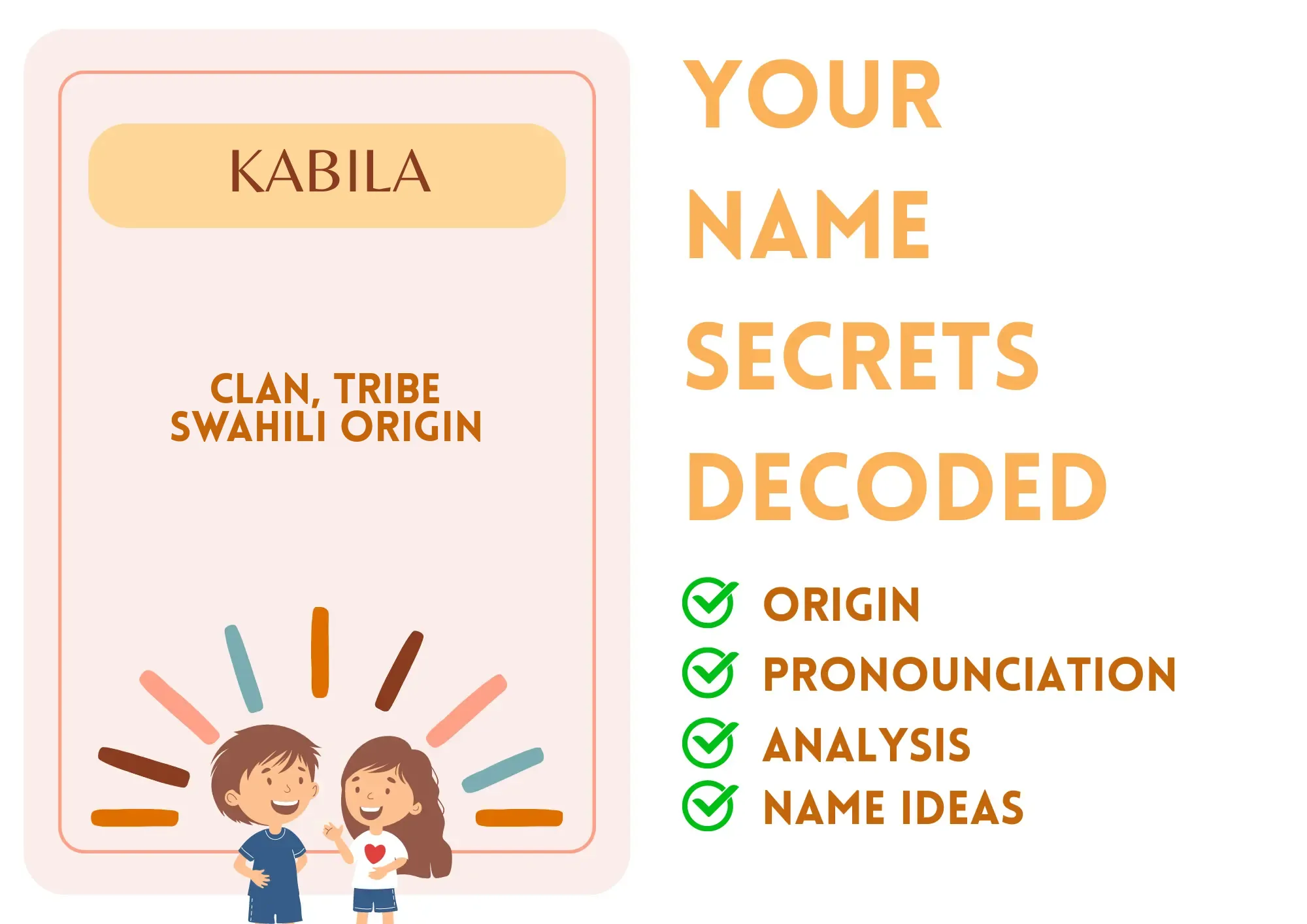
Kabila
Kabila is a unique name with roots in African culture, most commonly associated with the Swahili language. It translates to 'clan' or 'tribe', making it a significant identifier of community and kinship. It is predominantly used as a masculine name but can also be considered unisex.
The name Kabila carries cultural weight, often representing strength, heritage, and connection to one's ancestry. It is particularly popular within communities that value familial ties and the importance of relationships within clans.
While Kabila may not be as widely recognized in popular culture as some other names, it has historical significance related to tribal identities and leadership roles within societies. Its pronunciation is straightforward, and it evokes feelings of belonging and heritage.
Basic Information
Gender: Unisex
Sounds Like: KAH-bee-lah
Pronunciation Explanation: The name is pronounced with the emphasis on the first syllable 'KAH', followed by a softer 'bee' and ending with 'lah'.
Summary and Meaning
Meaning: clan, tribe (Swahili origin)
Origin: The name Kabila has its roots in African culture, particularly the Swahili-speaking populations along the East African coast.
Usage: Kabila is primarily a masculine name but can be used for any gender, reflecting its unisex nature.
Name Number (Chaldean)
Name Number (Pythagorean)
Religious and Cultural Significance
Religion: Traditional African
Background: In many African cultures, names carry significant meanings and are often linked to traditional beliefs and customs related to family and community.
Cultural Significance: Kabila is valued in cultures that emphasize the importance of clans and tribes, often used by families who take pride in their heritage.
Historical Significance: Kabila was popularized in the late 20th century, notably associated with prominent figures in African history and politics, reinforcing its meaning related to leadership within clans.
Popular Culture
Literature and Mythology: The name Kabila appears in narratives that explore themes of ancestry and leadership within tribal societies.
Movies and Television: While not widely used in mainstream films, Kabila is sometimes referenced in movies that focus on African heritage and storytelling.
Feelings and Perceptions
Perception: Kabila is generally perceived as strong and evocative of deep-rooted cultural heritage. It is appreciated for its uniqueness and meaningfulness.
Positive Feelings: Strength, cultural pride, community-oriented, unique, interconnected.
Negative Feelings: Might be unfamiliar to some due to its specific cultural context.
Practical Considerations
Ease of Writing and Calling: Kabila is easy to write and pronounce, consisting of six letters and three syllables, making it memorable and approachable.
Common Typos and Misspellings: Kabila,Kabilla,Kabilla
Common Nicknames: Kabi,Bill,Bila
Compatibility Analysis
Famous Persons Named Kabila
No results found for Kabila.
Related Names
Similar Sounding Names:
Kabil,Kabir,Kabila